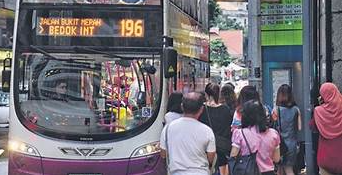LTA’s financial performance improves due to higher fare revenue and cost reductions.
SINGAPORE – The annual deficit for public bus operations in Singapore has dropped to $852 million in FY2023/2024, marking the lowest level in seven years. This decline, revealed in the Land Transport Authority’s (LTA) latest financial report, is the first time in six years the deficit has fallen below $1 billion, down from $1.2 billion two years ago.
Key contributors to this reduction were higher fare revenues and decreased fees paid to bus operators. Fare revenue from bus rides grew to $898 million, up 9% from $821 million the previous year, surpassing pre-pandemic levels of $862 million in FY2019/2020.
As of the first half of 2024, bus and train ridership has rebounded to approximately 97% of 2019 levels. Bus and train fares have gradually increased since 2021, adding more revenue to the LTA’s coffers. Service fees to bus operators were also lowered, amounting to $1.61 billion in FY2023/2024, down from $1.68 billion the previous year.
Despite the improved deficit, LTA’s overall operating expenditure grew to over $5 billion, though it was offset by operating income exceeding $2 billion. This resulted in a smaller overall deficit before government grants, which decreased to $2.79 billion from $2.91 billion in FY2022/2023.
Economist Walter Theseira attributed the narrowing deficit to more competitive bidding for bus contracts and the rationalization of some bus routes, which led to cost savings. However, the recently introduced Bus Connectivity Enhancement Programme (BCEP) is expected to increase costs, potentially reversing the current trend.
The LTA expects that subsidies for public transport will continue to be significant, with rising costs linked to new rail stations and the BCEP. Balancing the need for service quality with cost control remains a challenge, especially given growing public concerns over fare hikes and the perceived profitability of operators.


